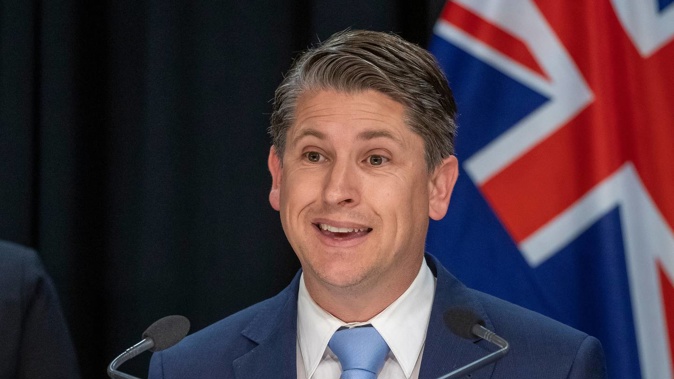
Is it just me or do you see fishhooks in the Government’s Fair Pay Agreements legislation too?
I mean it sounds great, doesn’t it? If you and I do the same job, we get the same minimum pay and conditions.
Which is the Government’s way of reversing elements of the deregulation of the labour market that happened 30 years ago when National was in government and did away with collective worker rights and replaced them with the Employment Contracts Act.
Which, over time, has meant more and more of us signing individual contracts with the outfits we work for and negotiating our own terms and conditions.
Which is fine if you’re the type of person who has the wherewithal to do that. And by wherewithal, I pretty much mean the confidence to say to an employer that ‘I think I’m worth this much, and these are conditions I’m after while I’m working for you’.
But, like anything in life, some people are better at some things than others, and the Employment Contracts Act probably hasn’t turned out to be the saviour for some New Zealand workers that the National government back in the day claimed it would be.
As Grant Robertson put it last night: the reduction in wages that resulted from the Employment Contracts Act 30 years ago wasn’t an accident - it was intentional - and he went on to say (quote) “Today we turn that around”.
And so the current Labour Government is saying today that it has delivered on its promise to do something to improve a lot of the people Workplace Relations Minister Michael Woods described in Parliament last night as being “the most vulnerable” - and he included in those the essential workers who kept things running during Covid.
National and ACT oppose the Fair Pay Agreements big time. Because of the numbers in the House, they knew they couldn’t stop the legislation - but both parties say if they are in Government after next year’s election, they’ll be getting rid of Fair Pay Agreements.
One of National’s main beefs is that employers will be forced to negotiate an industry-wide agreement if 10 per cent of people working in a particular sector want to start bargaining or negotiations.
So, let’s say you work at Pak‘nSave - if 10 per cent of all the people who work in supermarkets around the country get together and decide they want to negotiate a pay agreement for the lot of you - then your supermarket and all the other supermarkets will have to come to the table and thrash out a deal.
- Steven Joyce: Why there's nothing fair about Fair Pay Agreements
- Peters' message to unions: Attacking the Govt won't work
- Fair Pay Agreements explained: Business bogeyman or helping NZ's poor?
- Fair Pay Agreements to become law after heated, marathon debate
The Government is saying that this would ensure fairness. The National Party is saying it would mean mandatory union deals and would make businesses less competitive. The Council of Trade Unions - or CTU - says agreements like this will make it easier for employers to hire and keep staff.
Just quietly, it’ll probably be good for business for the unions too if they’re going to suddenly be involved in negotiating agreements that, back in the day, were called “awards”.
That was a term I remember from watching the news when I was a kid. There always seemed to be one of those guys from the wharfies unions on the TV banging on about awards.
In 2022, we call them Fair Pay Agreements. Back then, they were awards. But, essentially, they’re the same thing.
So you can understand why the likes of Business New Zealand and employers aren’t fussed about this at all. And I can understand that - even though I know there will undoubtedly be employers out there who have been quite comfortable screwing people down when it comes to their individual employment agreements.
And, for most businesses, this will be complex and for some, it will mean reduced profitability.
But for me - I really question the so-called “fairness” of these Fair Pay Agreements when what they will do, is ensure everyone gets paid the same for doing the same job, irrespective of how much effort they put into it.
Would you really want to do a genuine hard day’s work, and get paid the same as the slacker you work with who does the absolute bare minimum and always seems to have something wrong with them and “can’t come in today’?
I certainly wouldn’t. And this is where I see this whole thing going pear-shaped.
If you’ve worked anywhere, you’ll know the sort of person I’m talking about. The one who always seems to be last in, in the morning, and first out the door at the end of the day. The one who says they’d love to help you out, but they’re “just too snowed under, mate”. Under the pump. If you work in retail, maybe you bend over backwards for customers - but this other person you work with is rude and never goes the extra mile.
Yes, you could negotiate a pay rise or be rewarded for going above and beyond, but that’s up to your employer. And if your employer is already having to pay everyone extra as a minimum, your employer may not be so keen.
Well, under these new Fair Pay Agreements, you may as well just do what the other turkey does because they’ll be getting paid the same as you. Same base pay, same base conditions. And that doesn’t sit well with me, at all.
This article has been edited. An earlier version didn’t clearly state that Fair Pay Agreements set a minimum standard for pay and conditions and allow for performance-based rises.
Take your Radio, Podcasts and Music with you









